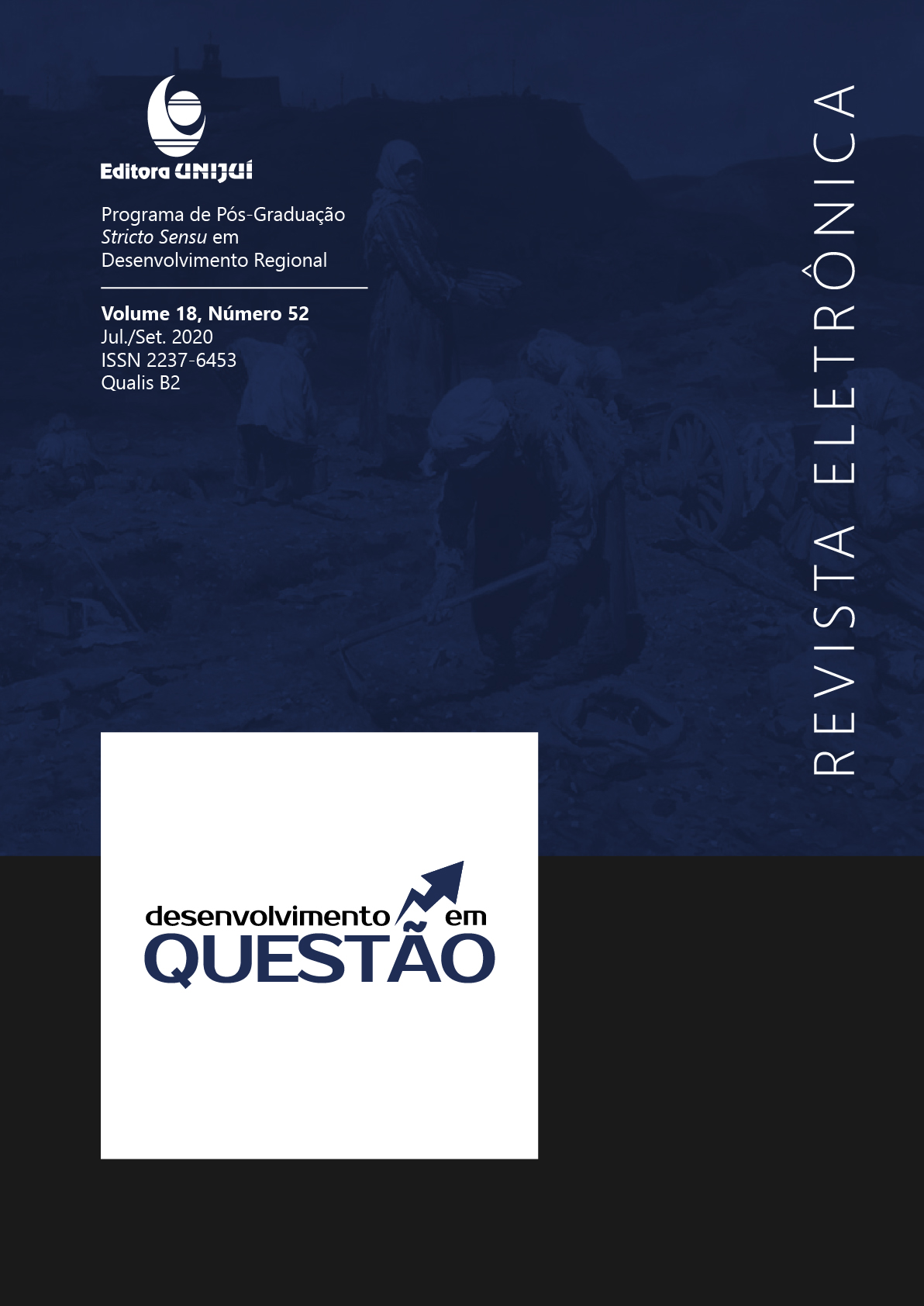Feiras Colaborativas e Economia Criativa em Caruaru, Pernambuco
DOI:
https://doi.org/10.21527/2237-6453.2020.52.286-307Palavras-chave:
Economia da Cultura. Economia Criativa. Feiras Colaborativas.Resumo
Este trabalho tem como objetivo analisar as feiras colaborativas que constituem a Economia Criativa da cidade de Caruaru-PE. Para isso, buscou-se, identificar o perfil dos seus empreendimentos e empreendedores(as), e compreender como ocorrem os processos de produção, circulação e consumo. Foi adotada abordagem qualitativa, e a pesquisa se caracteriza como descritiva. Foram realizadas visitas a 5 feiras colaborativas, e 8 entrevistas abertas e semiestruturadas com produtores(as) locais que participam das feiras estudadas. Como resultados, constatou-se que as feiras colaborativas têm valorizado marcas autorais locais e gerado oportunidades para produtores iniciantes exporem, divulgarem e venderem seus produtos, bem como realizarem parcerias. Verificou-se também que a maioria dos empreendedores que participam das feiras são mulheres, e que estas sentem diferenças em relação às feiras colaborativas independentes, e aquelas promovidas por órgãos públicos, como a prefeitura da cidade. Ressaltou-se a importância dessas feiras na inserção profissional de jovens recém-formados, que possuem empreendimentos com forte posicionamento social e ambiental, o que os diferencia dos negócios locais. Por fim, dois pontos foram destacados: a importância de se compreender a dinâmica da economia criativa a partir do contexto na qual ela se insere ; e que a atuação em feiras aparece como alternativa à situação desemprego, por meio de uma inserção num mercado informal, atrelada a uma situação de vulnerabilidade dos agentes entrevistados.
Downloads
Publicado
Como Citar
Edição
Seção
Licença
Ao publicar na Revista Desenvolvimento em Questão, os autores concordam com os seguintes termos:
Os trabalhos seguem a licença Creative Commons Atribuição 4.0 Internacional (CC BY 4.0), que permite:
Compartilhar — copiar e redistribuir o material em qualquer meio ou formato;
Adaptar — remixar, transformar e criar a partir do material para qualquer fim, inclusive comercial.
Essas permissões são irrevogáveis, desde que respeitados os seguintes termos:
Atribuição — Atribuição — os autores devem ser devidamente creditados, com link para a licença e indicação de eventuais alterações realizadas.
Sem restrições adicionais — não podem ser aplicadas condições legais ou tecnológicas que restrinjam o uso permitido pela licença.
Avisos:
A licença não se aplica a elementos em domínio público ou cobertos por exceções legais.
A licença não garante todos os direitos necessários para usos específicos (ex.: direitos de imagem, privacidade ou morais).
A revista não se responsabiliza pelas opiniões expressas nos artigos, que são de exclusiva responsabilidade dos autores. O Editor, com o apoio do Comitê Editorial, reserva-se o direito de sugerir ou solicitar modificações quando necessário.
Somente serão aceitos artigos científicos originais, com resultados de pesquisas de interesse que não tenham sido publicados nem submetidos simultaneamente a outro periódico com o mesmo objetivo.
A menção a marcas comerciais ou produtos específicos destina-se apenas à identificação, sem qualquer vínculo promocional por parte dos autores ou da revista.
Contrato de Licença (para artigos publicados a partir de 2025): Os autores mantêm os direitos autorais sobre seu artigo, e concedem a Revista Desenvolvimento em Questão o direito de primeira publicação.











